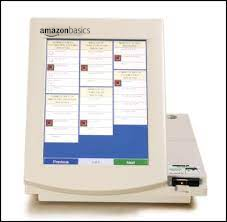When I think about making a community more robust, inevitably the discourse includes the idea of currency. Money, time, talent, skill. Some facet of power.
I was surfing around for something to read and came across Stephanie Kelton’s The Deficit Myth.
As is a strategy of mine, I searched for interviews, discussions, and debates with Kelton regarding their book. I started with this one on YouTube: Stephanie Kelton: Debunking the Deficit Myth | Town Hall Seattle
Skipping around to get a flavor of the material, Kelton began discussing the users of a currency (individuals, families, businesses, local and State governments) and the issuers (the Federal Government) of the currency.
This reminded me of the earlier pandemic discussion of alternative, community currencies:
- Small Town (Tenino, WA) Creates Local Currency to Weather COVID-19 Impacts
- Mexico, Italy towns produce local notes to help residents in crisis
- Complementary Currency Could Help Mitigate Inequality
Thankfully, as Wikipedians usually do, there is a great list of community currencies available in the United States and the world. There is also this article about Complementary Currencies.
And, as with most things in Indiana, Bloomington has a system of timebanking known as hOUR. Timebanking is one methodology for creating an alternative, local currency.
Does anyone know if there have been previous attempts in Greater Lafayette to create alternative local currencies? Does anyone have experience with hOUR? What are your thoughts?
